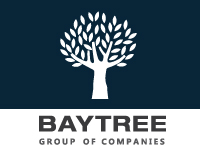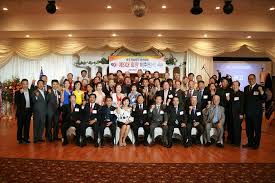CA
ON
홍이표치과
전화: 647-985-0456
9625 Yonge St #4, Richmond Hill, ON Toronto, ON
1.jfif)
변호사 정찬수 법률사무소
전화: +82 2-536-1144
서울특별시 서초구 서초동 Toronto, ON
1.jfif)
싸인건설
전화: 416-909-7070
4065 Chesswood Dr. North York, ON
0.jfif)
한인을 위한 KOREAN JOB BANK
전화: 6476245886
4065 Chesswood Drive Toronto, ON
.jpg)
최고의 POS시스템 - 스마트 디지탈 POS
전화: 416-909-7070
4065 CHESSWOOD DR. NORTH YORK Toronto, ON
0.jfif)
놀부 - 한식/일식/중식
전화: 416-221-4700
3 Elmhurst Ave, North York, ON

캐나다 공인 컨설턴트 - 한인크레딧 컨설팅
전화: 416-897-8438
1 High Meadow Place, Unit 2 North York, ON

준비된 바이어 그룹 , BAYTREE 이너써클
전화: 416-226-5999
7030 Woodbine Ave. Suite 103 Toronto, ON

한인 시니어 탁구협회
전화: 647-209-8933
1100 Petrolia Rd Toronto, ON
4.jpg)
조준상 (로열르페이지 한인부동산 대표)
전화: 416-449-7600
1993 Leslie St. Toronto, ON

호남향우회 (토론토)
전화: 647-981-0404
7 Bishop Ave. #2411 Toronto, ON

K-포차 ...미시사가(만두향프라자)
전화: 905-824-2141
169 DUNDAS ST. E. #7 Mississauga, ON

It would be a place where all the visitors including me share the life stories and experiences through their activities,especially on life as a immigrant.
Why don't you visit my personal blog:
www.lifemeansgo.blogspot.com
Many thanks.
블로그 ( 오늘 방문자 수: 313 전체: 267,876 )
시민들이 경찰처럼 행동할때 - Star
lakepurity
2009-10-31
아래 의견은 Osgoode Hall 법대 교수, Alln Young의 기고문을 옮겨 보았다.
이 기고문에서, 현 토론토 경찰 국장 Bill Blair와 토론토 시장 David Miller의
생각은, 어느시민이든, 현장에서 범죄를 저지른 혐의자를 체포하거나 추적하는 행위는 불법이
므로, 경찰에 전적으로 맡기라는 원론만 주장하고 있음을 보여준다.
그러나 전통적으로 우리사회의 관습에 의하면 "Hue and Cry"( 범죄자로부터 살아남기위해
돠와주세요 라고 외치면 옆을 지나는 시민이나 사람들은 달려가서 도와주는 의무가 있다)에
따라 같이 도와, 범죄자를 잡았던 그런 관습은 이제는 잘못하면 위법이 되여 버리는
그런 사회에 우리는 살고 있다.
범죄 피의자에 대한 처리는 공권력(경찰)만이 해야 하는지? 아니면 David Chen의 경우처럼
시민의 입장에서 붙잡은 행위가 정당하다고 해야 하는지? 현재로서는 단연코 공권력에
맡겨야 된다는 극히 원론적인 행위가 정당화 되는것 같다. 위급에 처해, 생명과 재산피해를 당하는 시민의(특히 코너 스토어를 주로 생업으로 하고 있는 우리 한인들) 입장에서는 범죄 현장을 보면서도 그냥 우두커니 서 있는게 최상인것 같다.
빌어먹을놈의 세상. 불법을 보면서도, 경찰이 아니고, 시민이라는 신분때문에
열중쉬어 하는게 최상의 방법인, 특히 토론시의경우, 오늘의 현실이 무섭다.
David Chen에 대한 연민의 정이 있을 뿐이다.
자세한 내용은 아래 원문을 보시면 됩니다.
When citizens act like police
Alan Young
Law professor at Osgoode Hall Law School
Published On Fri Oct 30 2009
David Chen Wang, the Chinatown storekeeper arrested after apprehending a shoplifting suspect outside his Dundas St. W. store, The Lucky Moose, in this June, 2009 file photo.
TONY BOCK/TORONTO STAR
David Chen has discovered that criminal justice has become a spectator sport. Members of the public are only allowed to watch from the sidelines. In exercising a citizen's power of arrest to apprehend a thief, the shopkeeper has now found himself in more legal hot water than the thief himself. In exchange for handing over the shoplifter, Chen now faces charges of assault, forcible confinement, carrying a concealed weapon and kidnapping.
Is Chen a hero or a villain? The same question polarized New Yorkers in the 1980s when Bernard Goetz was charged with attempted murder for taking the drastic pre-emptive step of shooting a group of young black men whom Goetz reasonably believed were about to mug him on the subway. The Goetz saga dragged on for years with no true resolution of the debate. In a compromised verdict, a jury found him to be guilty of some minor firearms offences instead of entering a conviction for attempted murder.
From an historical perspective, Goetz and Chen would be considered heroes but from a contemporary perspective their actions may be seen as reckless and foolhardy.
Although criminal justice has evolved into a spectator sport, it is clear that until the late 19th century the justice system was driven and controlled by the community. Our legal heritage is one of private prosecution and personal responsibility for the apprehension of criminals.
In fact, the origins of policing are found in the ancient practice of "hue and cry" in which all members of the community were legally obligated to assist in the apprehension of criminals. As the Supreme Court of Canada said in 2003: "The development of modern police forces brought a transfer of law enforcement activities from private citizens to peace officers. But it is the police officer's powers which are in a sense derivative from that of the citizen, not the other way around."
We have become so accustomed to delegating responsibility for law enforcement to public officials we have mostly forgotten that historically we were averse to turning over responsibility to legal professionals and other public bodies. We worried that the police might become a standing army and that a corps of public prosecutors would terrorize the vulnerable and protect those in power. To offset these concerns, our law retained some residual power and authority for citizens to take the law into their own hands. Since its inception in 1892, the Criminal Code has authorized both a citizen's power of arrest and the power to initiate criminal proceedings.
However, the reality is that those in power frown upon lay participation in criminal justice activities. When the Guardian Angels expressed an interest in assisting with the policing of Toronto streets in 2006, Police Chief Bill Blair and Mayor David Miller turned them down, noting that "policing should be done by the police."
Like the dismissal of the Guardian Angels, the laying of criminal charges against David Chen is a reminder that even though our law still allows Canadians to exercise some law enforcement and prosecutorial duties, this involvement will often receive a chilly reception.
The reluctance of public officials to embrace private law enforcement is the least of the problems facing the individual bent on self-help. In order to stay within the law, the individual must stickhandle within the significant restrictions placed upon the citizen's power of arrest under s.494 of the Criminal Code.
Anyone can exercise a power of arrest if you "find" someone committing an indictable offence, or if you have reasonable grounds to believe someone has committed an indictable or summary conviction offence and this person is being "freshly pursued by persons who have lawful authority to arrest the person."
A store owner can arrest someone who is committing an indictable or summary conviction offence in relation to the owner's property, but only if the owner, or an agent of the owner, "finds" the person committing the offence. So to avoid becoming a criminal for chasing a criminal the individual needs to know whether a crime is classified as indictable or summary conviction (i.e. in the old parlance, felony or misdemeanour), and the power to arrest does not extend to crimes committed in the past week, or even the past hour, as the private citizen must catch the criminal in flagrante delicto.
Even if an individual can stickhandle within these constraints, the citizen's power of arrest seems a bit foolish in modern times. In previous centuries, when exercising the power of arrest, the individual could let out the "hue and cry" and all able-bodied adults within earshot were legally obligated to assist.
Today screaming for help does not trigger a duty to render assistance, and even if you are an accomplished UFC fighter your skills will not protect you if the criminal you have pursued is armed. The citizen's power of arrest loses some of its romantic nobility in a culture overrun with guns.
I don't know whether David Chen is a hero or villain. Presumably this question will be directly or indirectly addressed in his upcoming trial. However, his story serves to remind us that the police do not have exclusive control over law enforcement and, in fact, it is often forgotten that private security personnel outnumber public police by a two-to-one ratio.
Although the exercise of the citizen's power of arrest is a risky endeavour, this risk remains a legal option because when we placed our trust in professional police the law never extinguished the powers given to members of the public to defend their property and their communities as they see fit.